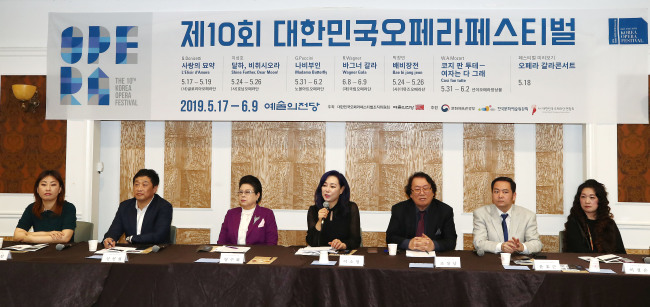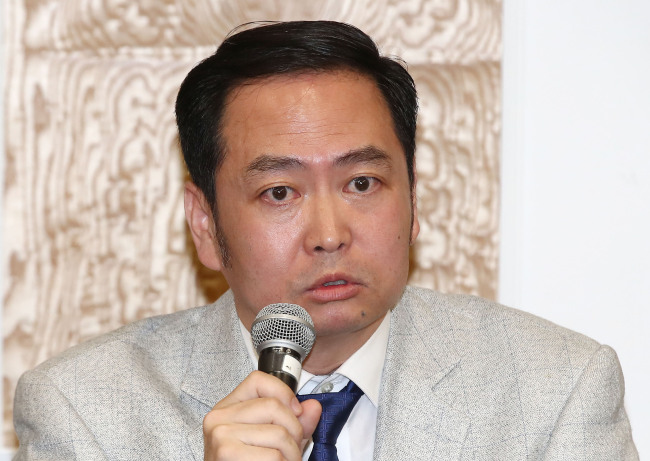Aiming to promote interest in the local opera scene, the 10th edition of the Korea Opera Festival will run May 17 to June 9.
The festival, now in its 10th edition, hopes to show a wide spectrum of operas, rather than reproducing money-making pieces.
“This festival is about providing opera companies an opportunity to perform and, for the audience, it is a chance to watch high quality performances at a discounted price,” Lee So-young, head of the organizing committee, said at a press conference held at the Seoul Arts Center on Thursday. The organizing committee is composed of six opera companies participating in the annual event.
 |
Lee So-young, chairman for the committee in charge of running the 10th Korea Opera Festival, speaks during a press conference Thursday at the Seoul Arts Center. (Yonhap) |
“Over the 10 years, the festival has seen around 40 operas on stage, attracting more than 230,000 people, encouraging diversity in Korea’s opera scene,” Lee said.
This year, the festival features six operas performed by six companies: “L’Elisir d’Amore,” “Shine Further, Dear Moon,” “Madama Butterfly,” “Bae Bi Jang Jeon,” “Cosi Fan Tutte” and “Wagner Gala.” The roster includes classic operas as well as original Korean-language pieces.
While explaining the program, Yoon Ho-geun, head of the Korea National Opera, the only state-funded opera company in Korea, broke into tears as he discussed wage exploitation in the industry.
 |
Yoon Ho-geun, head of the Korea National Opera, becomes emotional at a press conference for Korea Opera Festival held at the Seoul Arts Center, Thursday. (Yonhap) |
Network broadcaster MBC recently reported on the issue, interviewing artists who said they were not being properly paid. The singers could not speak up about not being paid, not even for transportation or meals, if they wanted to continue performing on stage, according to the interviews.
“I am aware that the opera scene has issues. Singers on stage seem glamorous. But life is hard for them. They go on the stage not for the bread but for themselves, for the emotions that hits them when performing in front of the audience,” he said, apologizing for his emotions.
Lee, agreed, arguing that opera companies should work on correcting the situation.
“The committee has been advising companies to use an approved contract form, trying to create a healthy environment for art. Especially for the Ministry of Culture, Sport and Tourism funds, it is mandatory to submit the approved contracts signed by company members,” she said.
“From this year, we are advising opera companies to use the approved contract even for costs that are not funded by the ministry. Every year after the festival, there is an evaluation of the shows. This year, the evaluation will be done in August. We will penalize companies that do not submit the approved contracts.”
By Im Eun-byel (
silverstar@heraldcorp.com)









![[Today’s K-pop] Blackpink’s Jennie, Lisa invited to Coachella as solo acts](http://res.heraldm.com/phpwas/restmb_idxmake.php?idx=644&simg=/content/image/2024/11/21/20241121050099_0.jpg)